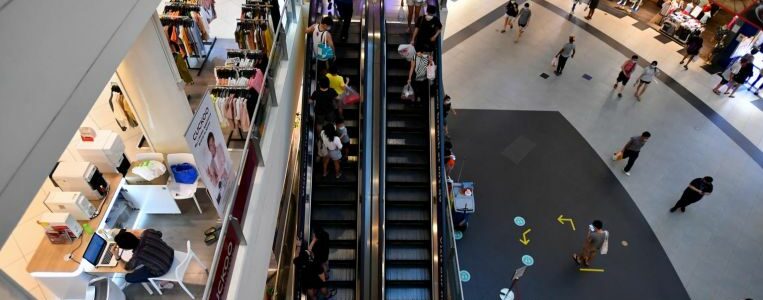
Small firms in F&B, retail coping slightly better during heightened alert vs circuit breaker: DBS
SINGAPORE (THE BUSINESS TIMES) – Micro and small enterprises in Singapore’s food and beverage (F&B) and retail sector are coping better during the phase two heightened alert (HA) versus last year’s “circuit-breaker” period, DBS said on Monday (June 14).
About 35 per cent of enterprises in these sectors indicated a more than half drop in earnings since the start of the heightened alert period. This is compared to the “circuit-breaker” period, when about 40 per cent did so, according to the DBS SME Pulse Check Survey.
The dipstick poll was conducted in early June with close to 200 micro and small enterprises in the F&B and retail sectors to understand the impact of Phase 2 HA on small and medium-sized enterprises (SMEs).
The decision to digitally transform their operations may have helped cushion the impact of the Phase 2 restrictions for these SMEs, DBS noted.
Close to nine in 10 respondents have incorporated digital solutions into their businesses since last year’s “circuit-breaker” period. Of these, 82 per cent introduced digital payment solutions, 46 per cent launched online storefronts, while 41 per cent digitalised their backend operations such as payroll, accounting and invoicing.
However, only three in 10 respondents say they do not see a need to downsize their operations or let workers go to stay afloat, a sign of souring business sentiment. This figure was “significantly lower” than the 85 per cent that expressed optimism for business expansion in a survey conducted by DBS in February this year.
That said, the remaining seven in 10 respondents did not express an immediate risk of closing down, speaking to the resilience of Singapore’s SME community, DBS said.
Looking ahead, the top business priorities for micro and small enterprises emerging from Phase 2 HA are ensuring sufficient cash flow and managing overhead costs.
Digital transformation is being put on the back burner for now, with about one quarter of respondents saying they are not looking to invest in the adoption of new technologies as they are more likely to conserve working capital.
For F&B respondents, one in two wanted government assistance to offset or lower commission costs charged by food delivery platforms. Such support includes the reintroduction of the Food Delivery Booster Package offered by Enterprise Singapore, which has been extended to July 15.
Meanwhile, close to three in 10 indicated rental relief, while around a quarter wanted enhancements to the Jobs Support Scheme.
DBS head of SME banking Joyce Tee noted that with the bank’s proactive engagement, the delinquency rates among its SME customers continued to remain low even throughout the Phase 2 HA.
“We expect most businesses to turn the corner as Singapore’s economy gradually reopens and we learn to live with Covid-19, but do not allow it to dominate our lives,” she said.
In 2020, DBS approved more than 10,000 collateral-free loans totalling more than S$5 billion to SMEs in Singapore, with over 90 per cent of the loans going to micro and small enterprises.
The bank launched its own F&B Digital Relief Package in March 2020 to help F&B establishments build a digital presence and create online income streams. The package has benefited over 1,000 F&B establishments to date, the bulk comprising micro and small enterprises, DBS said.
Join ST’s Telegram channel here and get the latest breaking news delivered to you.
Source: Read Full Article